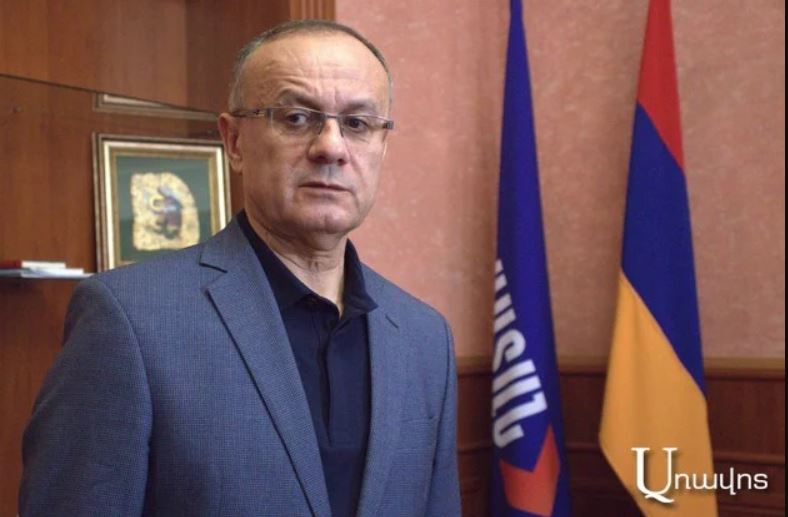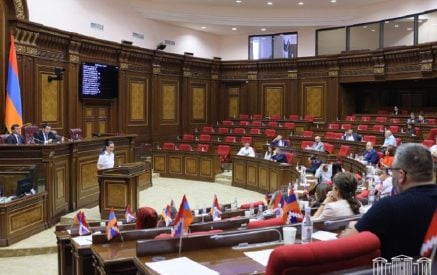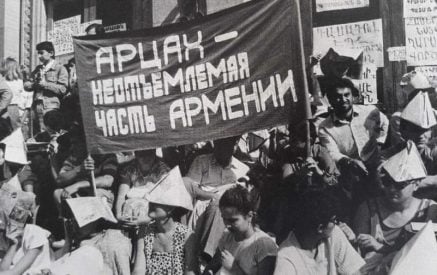The National Security Service confirmed the day before, which means the incident happened; they saw it on the spot. Seyran Ohanyan, head of the “Armenia” faction, said in a conversation with journalists in the parliament, referring to the statement issued by the National Security Service that Azerbaijanis have advanced in at least five directions on the territory of the Republic of Armenia.
Meanwhile, at the government session, Prime Minister Nikol Pashinyan announced no positional change: “This is not a new thing; there have always been contradictions and contradictory actions in the statements of the Armenian authorities,” Seyran Ohanyan said. He says that despite the statements of the two parties, Armenia and Azerbaijan, who declared an era of peace, we are witnessing many provocations by Azerbaijan. Azerbaijan is consistently tightening the ring around both Armenia and Artsakh. According to the speaker, Azerbaijan has two goals. “To get the “corridor” it strives for and to connect Azerbaijan to Nakhichevan through the Syunik sector. Second, to depopulate Artsakh. Now, they can say anything that they are ready to ensure the rights of the people of Artsakh, but we saw it both during the Soviet Union and the second war, and we see it all now.”
The former Minister of Defense believes that in this situation, we should study every centimeter of our borders and organize the defense, which is the army’s task first. “The Armenian government says today that National Security Service units should replace the army units, but they can do this only when two opposing, enemy states have become friends and want to live with each other in peaceful coexistence. But if you declare peace on the one hand and say that they are ready to go for it, on the other hand, we see Azerbaijan’s behavior, rhetoric, and provocations; one can say combat operations, psychological pressure on Armenia, one can say that we are still in a war situation. The National Security Service cannot organize defense within the borders of Armenia with its border guard capabilities.”
According to hIs description, the RA government continues to live as if nothing happened to RA and Artsakh, while the blockade of the Berdzor corridor should have given the RA government a reason to think. Seyran Ohanyan believes that the RA authorities cannot or do not want to correctly assess the military-political situation and determine the priorities. He believes that our priority is security, but he has a question in that case.
Read also
“How did it happen that Azerbaijan, from Baku, came to the village of Tegh, not having any inhabited Azerbaijani settlements behind them, they are strengthening, advancing, and we, having settlements behind us, left the border villagers alone to the Azerbaijanis? First of all, we had to organize a defense.” In response to the question, “Whose omission is it?” Seyran Ohanyan mentioned a whole chain, from the intelligence service to the service that attacks the enemy and international cooperation and negotiators, generalizing that the omission belongs to the RA authorities in state and military administration.
He emphasizes that after the end of the 44-day war, in contrast to the attitude of the RA government, when the order was given to withdraw the troops in different areas, the Azerbaijani authorities gave the order to advance centimeter by centimeter, creating a basis for demarcation and delimitation for themselves to reach their interests: “Within the framework of the agreements, a new road should be designed and built while advancing the idea of the corridor, because the corridor includes not only roads but also gas pipelines, power lines, communication means.
Azerbaijan quickly built its road, while the Armenian side still needed to build the alternative road fully. They say that the road should have been opened on April 1; then why was it allowed, or what are the agreements with Aliyev? Once again, Aliyev violates the agreements,” Seyran Ohanyan said. He believes that the residents of the border settlements should unite, stand up, and demand from the authorities security of the borders.
Nelly GRIGORYAN























































